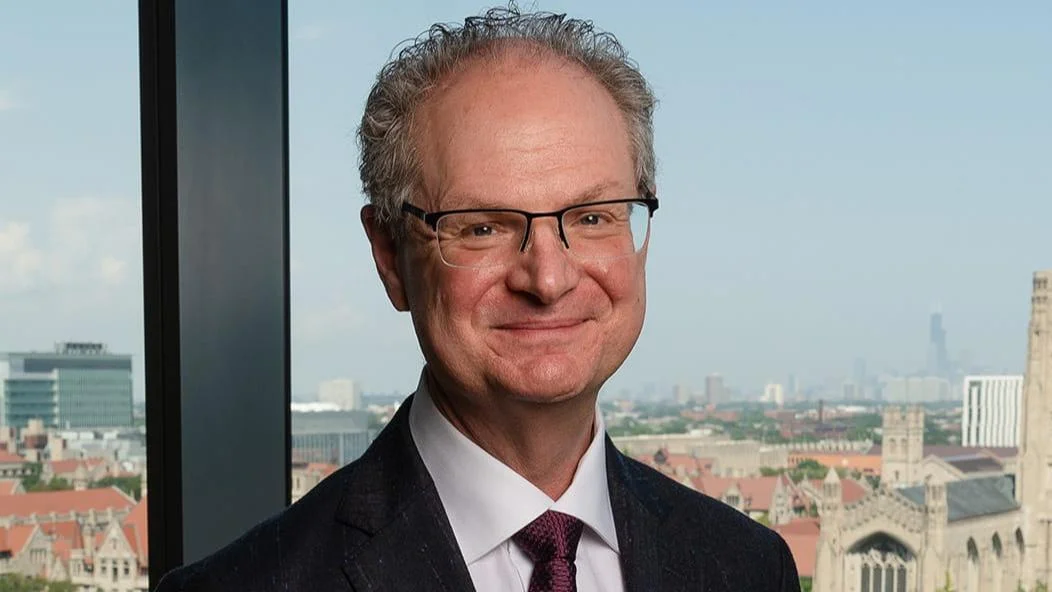As Chicago faces a significant budget shortfall for its public transit system, the Regional Transportation Authority (RTA) projects a gap of around $250 million beginning in fiscal year 2026. The RTA, which oversees the Chicago Transit Authority (CTA), Metra, and Pace, anticipates that without substantial reforms, this deficit will likely recur annually.
Justin Marlowe, research professor at the University of Chicago and director of the Center for Municipal Finance, explained the situation and possible solutions. He said, "Depending on whose numbers you use, the RTA's budget gap was reported as somewhere between half a billion and $750 million in fiscal year 2026—and some estimates were even higher. The RTA recently cut its projected budget deficit to around $250 million. That’s a more manageable challenge over the next few months. The real concern is that this isn’t a one-time problem. All the projections suggest the gap will reappear year after year for the foreseeable future unless something changes in how we fund or operate transit."
Marlowe added, "It’s a cliff in two senses: There’s the immediate, known shortfall and then there’s the structural reality that similar cliffs are coming annually if nothing changes."
Declining ridership is one factor behind the funding crisis. Marlowe noted that ridership has been decreasing since before COVID-19, and while it has partially recovered since the pandemic, it remains below levels seen in the mid-2000s. Meanwhile, costs continue to rise due to factors such as pensions, collective bargaining agreements, and aging infrastructure.
"Chicago has one of the best transit systems in the country in terms of options but it hasn’t made the forward-looking investments that could save money down the road, like retrofitting for more fuel-efficient vehicles," Marlowe said. He also pointed out that Chicago's system relies heavily on fare revenue, with state law requiring more than half of operating revenues to come from riders—a policy that can create a cycle of fare increases and declining ridership.
Another challenge is reliance on sales tax revenue, which is based on taxing goods rather than services. As Illinois' economy has shifted toward services, this tax base has eroded while expenses have grown.
Marlowe also highlighted governance issues: "The RTA was set up as a coordinating body, but in practice the CTA, Metra and Pace behave like three separate agencies. They serve different constituencies, have different governance structures and have limited authority to do the kind of centralized, well-coordinated capital planning and service delivery that we see in other regional transit systems."
He mentioned that some lawmakers are calling for governance reform before approving new funding. One proposal would create a "super agency" with greater power to borrow, plan, and coordinate system-wide efforts.
On potential new revenue sources, Marlowe described recent legislative discussions about diverting revenue from the Illinois Tollway Authority and creating a delivery surcharge or "Uber tax." However, both proposals faced opposition. He said, "The broader menu is much bigger. The Chicago Metropolitan Agency for Planning’s Plan of Action for Regional Transit (PART) identified more than 40 options, from expanding the sales tax to services, to congestion pricing and higher real estate transfer taxes. The long-term solution that keeps coming up, though, is expanding the sales tax base to services. Many states have already gone that route."
Marlowe also addressed misconceptions about transit funding: "One misconception is that the rider experience alone drives ridership... Another misconception is that transit pays for itself through fares. In reality, fares now cover less than half of operating costs and that share is shrinking... And finally, I think people underestimate how little integrated, forward-looking planning happens across the system."
Looking ahead, Marlowe expects a mix of new revenue measures and possible service cuts to address short-term gaps but sees expansion of sales taxes to services as likely necessary for long-term sustainability.
Regarding recent federal actions, Marlowe said: "The federal government’s pullback from transit funding will have a minimal impact on the RTA’s fiscal year 2026 budget. But it is the latest and the clearest signal that the decades-long federal-local partnership on public transit generally, and infrastructure finance more generally, is near its end."
He concluded that Chicago and other large cities may need to find new ways to fund major infrastructure projects without relying on federal support.

